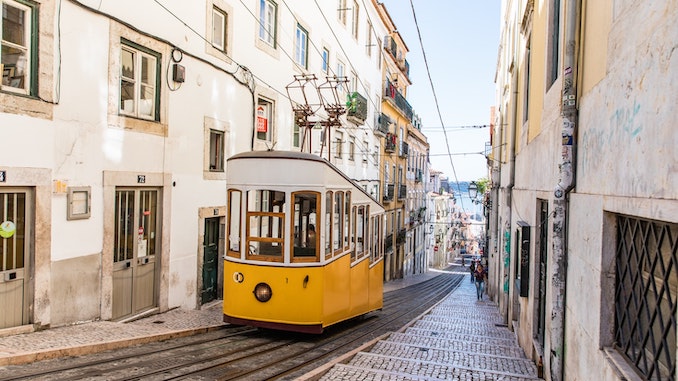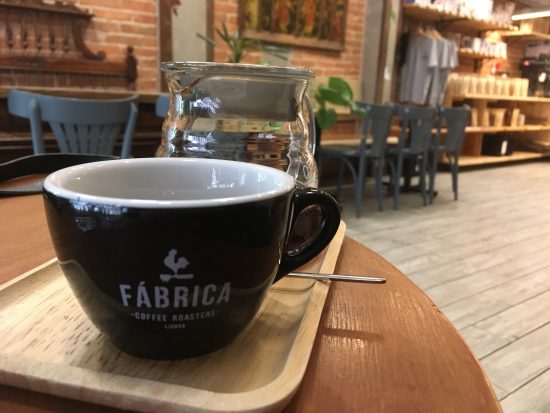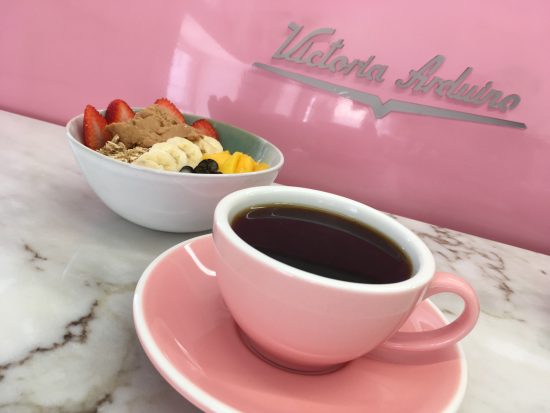
The country’s strong presence of expats may be responsible for the recent boom in specialty-coffee options.
BY TANYA NANETTI
SPECIAL TO BARISTA MAGAZINE ONLINE
Cover photo by André Lergier for Unsplash
Portugal has a long love story with coffee, tangled with the colonialism of Brazil and undervalued pricing. This may explain why in Portugal, the specialty-coffee scene still struggles to grow as quickly as it has in other European countries.
After all, let’s not forget that in Portugal, the classic espresso is called BICA: an acronym that means beba isto com açúcar, or ”drink it with sugar.” This is a suggestion that stems from traditional ways to enjoy the beverage once considered bitter and dark.
But practices are slowly changing. Thanks to early pioneers who have started roasting specialty coffee in Portugal in recent years, they are now starting to move toward a different direction. Every month new specialty shops and roasters are appearing, especially in the two largest cities, Lisbon and Porto.
From the beginning of specialty coffee in Portugal, this new wave of coffee has been strictly connected with expat culture; foreign coffee lovers, entrepreneurs, and companies already accustomed to the specialty-coffee world probably saw Portugal as a new market to explore. And they were quite right: In the time between moving to Portugal and visiting it several years ago, I was simply stunned. I couldn’t believe how quickly the local specialty-coffee scene grew.

The First Roasters
Stanislav Benderschi, half-Portuguese and half-Russian, fell in love with the specialty-coffee scene during his years spent in Germany. And so, he opened Fábrica Coffee Roasters in Lisbon in summer 2015, with a menu format similar to other European cities such as Berlin and London. He offered standard espresso drinks, manual brews, and classic pastry-and-brunch items. An obvious target was the tourists, already accustomed to the European specialty café format.
And he was not alone: Around the same time, Copenhagen Coffee Lab added a branch not too far from Fábrica, offering a similar Nordic approach to pastries, with light-roasted coffee and nuanced manual-brew options.
The only huge difference between these Portuguese pioneers and most of the specialty roasters (especially the ones from Germany and Scandinavia) was using medium roast, but it’s not difficult to understand why. In a place where locals are accustomed to dark-roasted coffee, perhaps this was an attempt to introduce them to specialty coffee.
Expanding From Dark to Medium Roast
Now things are not so different: Surely there are many more cafés to choose from, but the average roast style continues to be medium/dark. However, there are a few really interesting exceptions. Buraca Roasters, for example, prefers to keep roasts light and bright as their specialty. Even when roasters expand from abroad—which still happens frequently—they seem to prefer to adapt to the current style instead of trying something new.
Surely things have changed quite a lot for what specialty-coffee customers care about. In the quaintest coffee shops around Porto and Lisbon, you can now find small communities of specialty-coffee lovers, mostly consisting of expats and plenty of locals who eventually fell in love with the third wave.
Slightly different is what is happening with the largest café franchises: With many locations mainly around Lisbon, they are now considered by expats as the perfect spot for co-working, and by tourists as the best spots to catch a breath and rest from the effort of walking the Portuguese cities which, mysteriously, seem to be always uphill.

The Rise of Specialty in the South
Also noteworthy is what is happening in the south, in Lagos and the main touristic areas of Algarve. Here, small specialty-coffee spots like Coffee & Waves are trendy and place an emphasis on brunch and Instagrammable items, and new concepts get bigger every summer. These aesthetic coffee shops are often present with a single purpose: to captivate as many tourists as possible.
And they usually do it quite well. Good coffee and good food is a format already familiar to most tourists, mainly from Germany and the UK, all set in the perfect spot to remind customers that yes, they’re on vacation … but they should also feel right at home.
We will continue this feature by highlighting more specialty cafés you can find in Portugal in the coming days.
ABOUT THE AUTHOR
Tanya Nanetti (she/her) is a specialty-coffee barista, a traveler, and a dreamer. When she’s not behind the coffee machine (or visiting some hidden corner of the world), she’s busy writing for Coffee Insurrection, a website about specialty coffee that she’s creating along with her boyfriend.

